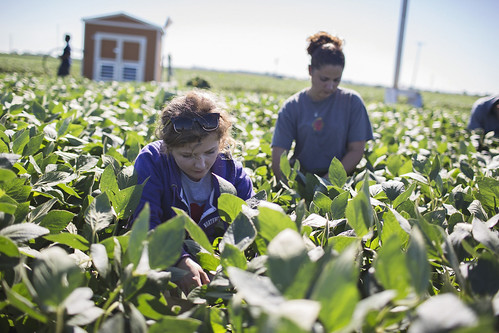
The UN recently released a report stating that world hunger is once again on the rise, with 815 million people now hungry. That is roughly two and a half times the population of the United States. To this end, the UN lists “zero hunger” near the top of its list of Sustainable Development Goals, only behind “no poverty” at number one.
The October 2017 Borlaug Dialogue, held every year in conjunction with World Food Prize Week, focused on agriculture as “the road out of poverty.” This year’s World Food Prize Winner, Dr. Akinwumi Adesina, has dedicated his life’s mission to uplifting millions out of poverty through agriculture, good nutrition and education.
The USDA’s Agricultural Research Service (ARS) is committed to doing its part to find economically viable applications and discoveries that will strengthen communities and lead to a food-secure world. Among such efforts is the Realizing Increased Photosynthetic Efficiency (RIPE) project, a collaboration between ARS’s Global Change and Photosynthesis Research Unit and the University of Illinois.
The RIPE team simulated the 170-step process of photosynthesis and used computer models to identify potential pipelines for increasing photosynthetic efficiency. Last year, the team published a study in Science that demonstrated an approach in tobacco for increasing crop productivity by about 15 percent. Other work conducted by the team is suggesting the potential for even greater improvements.
ARS recently celebrated a $45 million, five-year reinvestment in the RIPE project from the Bill & Melinda Gates Foundation (after a $25 million investment in 2012), the Foundation for Food and Agriculture Research, and the U.K. Department for International Development.
Moving forward, the RIPE team will carry out tests on cowpeas, cassava and soybeans. Increasing yields in these crops is critical for increasing food security, especially in Sub-Saharan Africa and Southeast Asia. Nearly 750 million of the 815 million hungry people in the world live in these areas.
In the words of Dr. Adesina, “It is science that feeds people.” The work of ARS scientists goes a long way in helping farmers in the United States and around the globe increase the profitability and sustainability of food, feed, fiber and fuel production.
###

